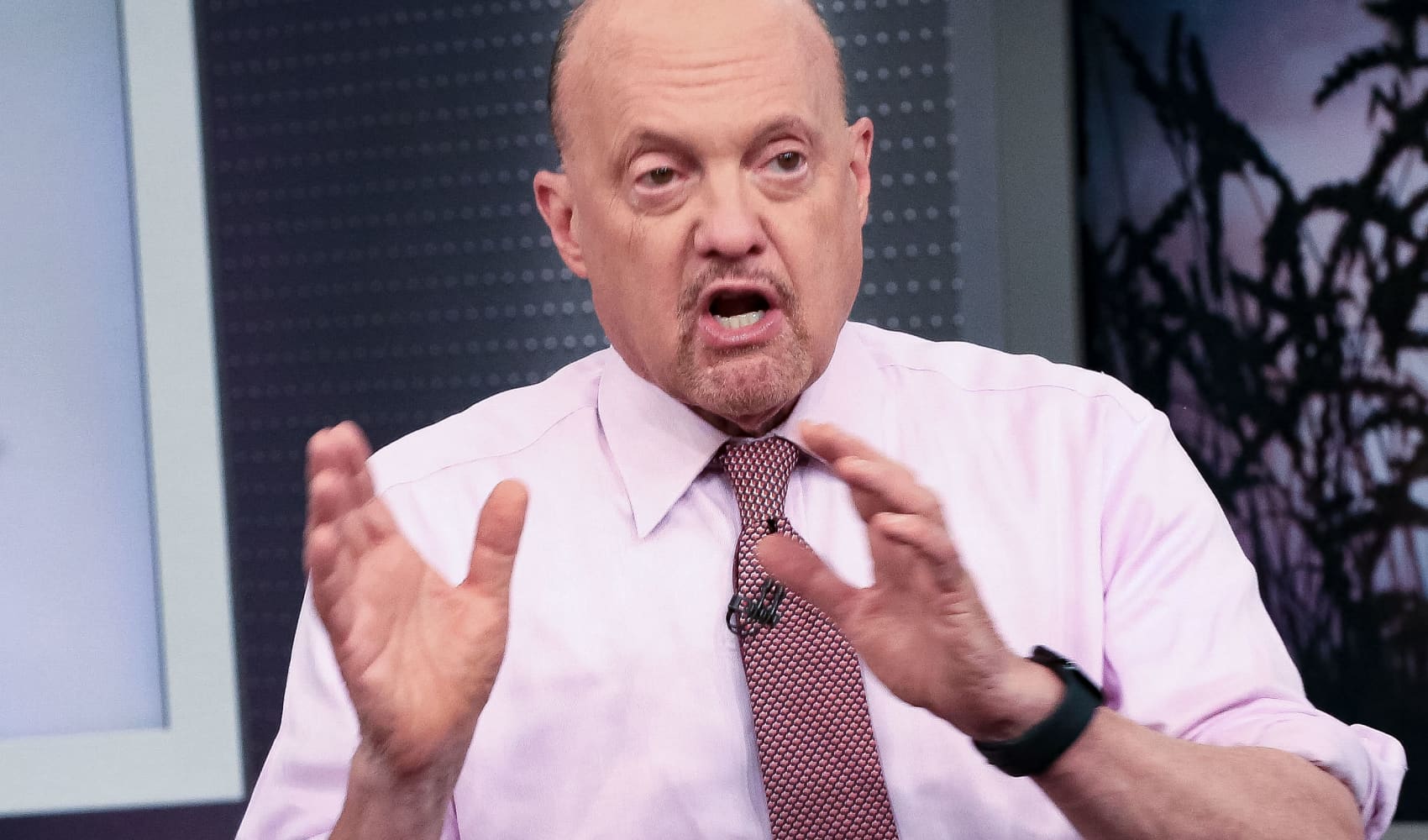
- Asian and European chip stocks fell on Wednesday after Dutch semiconductor equipment maker ASML posted disappointing sales forecasts, driving down global stocks in the sector.
- In Asia, Japan's Tokyo Electron logged the biggest loses, dropping nearly 10%, while in Europe, ASML stock fell for a second day, losing 4% of its value.
- ASML's CEO Christophe Fouquet warned of cautiousness among customers in the company's results — which were released a day early — saying a "recovery is more gradual than previously expected."
Global chip stocks fell on Wednesday, after Dutch semiconductor equipment maker ASML posted disappointing sales forecasts, driving down global stocks in the sector.
Shares of ASML extended losses into the second day at the start of the European trading session, down 5%. The company's stock dropped 16% Tuesday, losing 49.2 billion euros ($53.6 billion) from its market capitalization in a single day, according to CNBC calculations.
ASML's decline also dragged other European semiconductor firms in the red on Wednesday. ASMI — a Netherlands-based firm that supplies wafer processing equipment for the semiconductor manufacturing industry — fell 2.3%. Compatriot chip equipment maker BE Semionductor dropped 1.9%.
Dutch-listed semiconductor firm STMicroelectronics lost 1.2%, while German chipmaker Infineon shed 1.1%. Soitec, French semiconductor materials manufacturer, fell 0.9%
Asian declines
In Asia, meanwhile, shares of Japanese semiconductor manufacturing firm Tokyo Electron logged the biggest loses, dropping nearly 10%. Renesas Electronics fell over 3%, and Advantest, a testing equipment supplier dipped 0.8%.
Money Report
Taiwan Semiconductor Manufacturing Company and Hon Hai Precision Industry — known internationally as Foxconn — fell as much as 3.3% and 1.6, respectively.
South Korean chipmaking heavyweight SK Hynix, which manufactures high bandwidth memory chips for AI applications for Nvidia, traded 1.6% lower. While Samsung Electronics, the world's largest maker for dynamic random-access memory chips, saw its shares drop 1.9%.
Losses in the region's semiconductor sector also dragged down major indexes. Japan's Nikkei 225 lost more than 2%, South Korea's Kospi dipped 0.6% and the Taiwan Weighted Index slid 0.7%.
ASML reports early
In a report on Tuesday, ASML, which is based in Veldhoven, Netherlands, said it expects net sales for 2025 to come in between 30 billion euros and 35 billion euros ($32.7 billion and $38.1 billion), at the lower half of the range it had previously provided.
Net bookings for the September quarter were 2.6 billion euros ($2.83 billion), the company said — well below the 5.6 billion euro LSEG consensus estimate. Net sales, however, beat expectations coming in at 7.5 billion euros.
The company's CEO warned of cautiousness among customers and said a "recovery is more gradual than previously expected."
After ASML tanked 16%, other global chipmakers plunged. Nvidia fell 4.7% and AMD lost 5.2%.
Also on Tuesday, Bloomberg reported that that Biden administration officials had discussed limiting sales of advanced AI clips from Nvidia to certain countries in the interest of national security, further dampening investor sentiment around the semiconductor sector.
ASML has faced a tougher business outlook in China due to U.S. and Dutch export restrictions on its shipments.
CFO Roger Dassen said Tuesday that he expects the company's China business to show a "more normalized percentage in our order book and also in our business."
"So we expect China to come in at around 20% of our total revenue for next year," he said. In its June-quarter earnings presentation, ASML said that 49% of its sales come from China.
ASML's business in Asia is likely to face continued headwinds, Eugene, Hsiao, head of China equity strategy at Macquarie Capital, said on CNBC's "Squawk Box Asia" on Wednesday.
While "it makes a lot of sense" for ASML to continue working with China from the "economic perspective", he said, there are "broader issues between governments going into economic problems."






